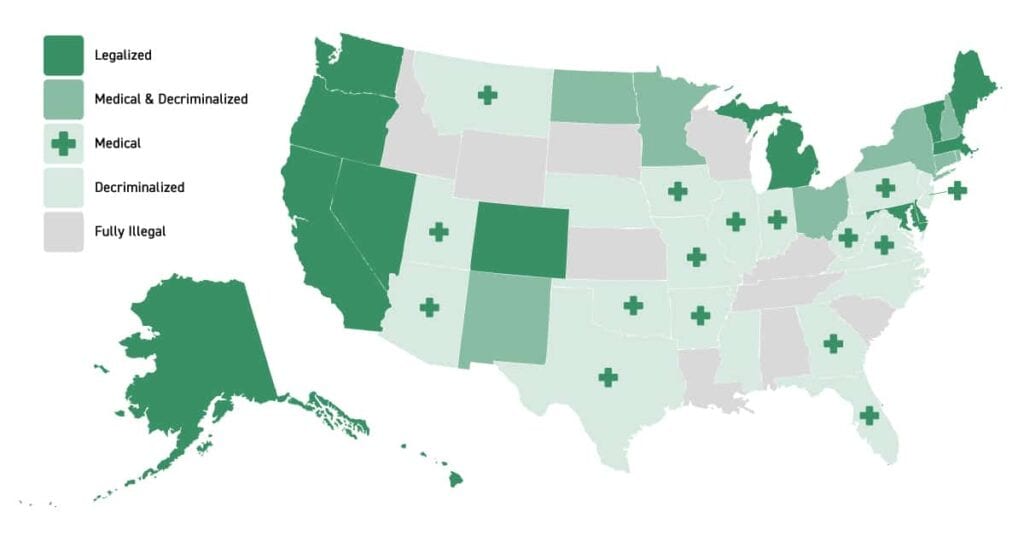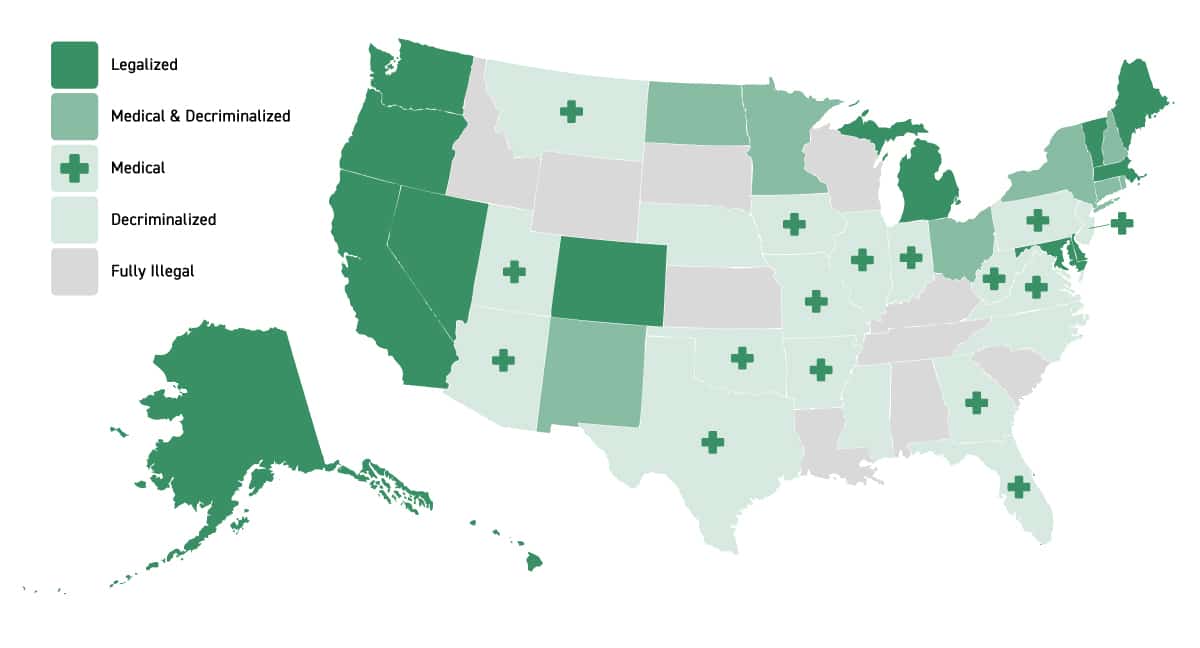Ever wondered how legal disclaimers and warnings are managed when it comes to the marketing of marijuana-branded clothing? This intriguing topic delves into the fascinating world of the fashion industry and explores how companies navigate the legal landscape. From labeling laws to consumer protection, understanding how these disclaimers are handled sheds light on the complexities of marketing products associated with a regulated substance. In this article, we’ll explore the various approaches taken by businesses to ensure compliance and communicate effectively with their potential customers. So, grab a cup of tea and prepare to explore the intriguing intersection of fashion, marijuana, and legalities.
Overview of Marijuana-Branded Clothing Marketing
Rising popularity of marijuana-branded clothing
In recent years, there has been a significant rise in the popularity of marijuana-branded clothing. With the growing acceptance and legalization of cannabis in various parts of the world, the demand for clothing and accessories that showcase one’s affiliation with the marijuana culture has surged. Marijuana-themed clothing acts as a form of self-expression for individuals who identify with the cannabis culture, conveying their support and enthusiasm for this emerging industry.
Importance of legal disclaimers and warnings
As with any industry, the marketing of marijuana-branded clothing is subject to legal regulations and requirements. Legal disclaimers and warnings play a crucial role in ensuring compliance with these regulations and protecting both consumers and businesses. By clearly indicating important information about the product, its potential risks, and legal implications, these disclaimers help manage expectations and mitigate potential legal issues.
Applicable Laws and Regulations
Federal laws regarding marijuana
While the legalization of marijuana may be expanding, it remains illegal at the federal level in many countries. This creates a complex legal landscape for marketing cannabis-related products, including clothing. Businesses operating in this industry must navigate federal laws, such as the Controlled Substances Act in the United States, which classifies marijuana as a Schedule I drug, to ensure compliance and avoid potential legal consequences.
State-specific regulations
In addition to federal laws, businesses must also be aware of and comply with state-specific regulations regarding the marketing of marijuana-branded clothing. Each state may have its own limitations and requirements, making it essential for companies to thoroughly research and understand the laws of the states in which they operate or sell their products.
Trademark laws and infringements
Trademark protection plays a crucial role in safeguarding the intellectual property rights of marijuana brands and preventing infringement by other clothing brands. It is important for businesses in the marijuana industry to secure trademarks for their brands, logos, and designs to establish legal ownership and prevent potential disputes. Similarly, clothing brands must be cautious to not infringe upon existing marijuana-related trademarks, which could result in legal consequences.
Legal Disclaimers on Clothing
Purpose of legal disclaimers
Legal disclaimers on marijuana-branded clothing serve multiple purposes. Firstly, they provide important information to consumers, ensuring that they are aware of any potential risks or legal implications associated with the product. Secondly, these disclaimers help protect the clothing brand from liability by clearly stating that the brand does not condone or promote illegal activities. Lastly, legal disclaimers help companies comply with advertising and labeling regulations, ensuring transparency and avoiding misleading claims.
Common disclaimers on marijuana-branded clothing
There are several common disclaimers found on marijuana-branded clothing. These often include statements such as “For novelty purposes only,” “Not intended for illegal use,” or “Not affiliated with the illegal drug trade.” These disclaimers aim to clearly communicate the brand’s intentions and distance themselves from any association with illegal drug activities.
Requirements for accurate disclaimers
For disclaimers to be effective and legally compliant, they must be accurate, clear, and easily visible. The font size should be legible, and the wording should be concise and easily understood by consumers. The disclaimers should also be prominently displayed on the clothing, ensuring that consumers are aware of the disclaimer before purchasing or wearing the product.
Exceptions and limitations
It is important to note that legal disclaimers have their limitations. Although disclaimers can provide some protection, they may not absolve a brand from legal consequences if their marketing or products violate any laws or regulations. Therefore, businesses must not solely rely on disclaimers and should ensure full compliance with applicable laws and regulations.
Content Restrictions and Warnings
Prohibition of explicit content
When marketing marijuana-branded clothing, businesses must be mindful of content restrictions regarding explicit material. Depictions of explicit drug use, sexual content, or offensive language can lead to legal consequences and damage the brand’s reputation. To avoid such pitfalls, brands should carefully consider their design choices and ensure they adhere to societal norms and expectations.
Age restrictions and warnings
Marijuana-related products, including clothing, often carry age restrictions due to legal requirements. Businesses must clearly communicate these age restrictions through warnings, such as “18+,” to ensure compliance and prevent the sale of products to underage individuals. By implementing age restrictions and warnings, businesses can demonstrate their commitment to responsible marketing and protect themselves from potential legal repercussions.
Health and safety warnings
Just as with any product, marijuana-branded clothing may present potential health and safety risks. For example, clothing with marijuana imagery may inadvertently promote drug use or appeal to individuals under the influence. To address these concerns, brands should consider including health and safety warnings that remind consumers to use the products responsibly and in compliance with applicable laws.
Use of symbols and imagery
The use of symbols and imagery on marijuana-branded clothing requires careful consideration. While it is important to capture the essence of the marijuana culture, brands must ensure that their designs do not promote or glorify illicit drug use. Balancing artistic expression with responsible marketing is crucial to avoid legal challenges and negative public perception.
Advertising Restrictions
Restrictions on promoting cannabis products
Advertising cannabis products, including marijuana-branded clothing, is subject to strict regulations. Many jurisdictions prohibit marketing practices that target non-legal markets or promote illegal activities. Businesses must be aware of these restrictions and tailor their advertising strategies accordingly, focusing on responsible marketing to legal and adult markets.
Advertisements targeting minors
Due to the potential influence on young audiences, marketing efforts for marijuana-branded clothing should avoid targeting minors. This includes refraining from using characters, symbols, or designs that are primarily appealing to children or adolescents. By adhering to age-appropriate marketing practices, brands can demonstrate their commitment to responsible advertising and avoid legal repercussions.
Avoiding misleading claims
When advertising marijuana-branded clothing, it is important to avoid making misleading claims about the product. Claims such as health benefits or endorsements from medical professionals that cannot be substantiated can lead to legal consequences. Brands should focus on truthful and accurate descriptions of the clothing, allowing consumers to make informed decisions.
Avoiding illegal drug references
To maintain compliance with advertising regulations, marijuana-branded clothing should avoid any explicit or implicit references to illegal drugs. This includes using slang terms, drug paraphernalia, or imagery associated with the illegal drug trade. By steering clear of these references, businesses can safeguard their reputation and credibility.
Compliance with Cannabis Packaging Laws
Packaging requirements for marijuana products
While packaging requirements primarily apply to marijuana products themselves, clothing brands should consider these regulations when incorporating marijuana branding. Packaging laws often dictate the information that must be displayed, such as product warnings, ingredients, and potency. Although clothing may not require the same level of packaging, brands should be aware of these requirements to ensure compliance.
Implications for clothing with marijuana branding
Marijuana branding on clothing brings unique considerations in terms of compliance with packaging laws. While clothing items may not require external packaging in the same way as marijuana products, brands should still consider including appropriate labeling and warnings on the clothing itself. This can help inform consumers about the potential risks associated with the clothing and demonstrate commitment to regulatory compliance.
Labeling and packaging warnings
To comply with packaging laws, clothing brands can incorporate labeling and packaging warnings on marijuana-branded clothing. These warnings may include statements about potential allergens, recommended washing instructions, or general care recommendations. By adhering to these labeling requirements, businesses can promote transparency and consumer safety.

This image is property of cdn-gjanl.nitrocdn.com.
Intellectual Property and Trademarks
Trademark protection for marijuana brands
Establishing trademark protection is crucial for marijuana brands to secure their intellectual property rights. Trademarks grant exclusive rights to brands, logos, and designs, preventing others from using similar marks that may cause confusion. By securing trademarks, marijuana-related clothing brands can establish a unique identity and protect their brand equity from infringement.
Infringement risks for clothing brands
Clothing brands operating in the marijuana industry must be cautious about potential infringement risks. Using trademarks, logos, or designs similar to those already registered by established marijuana brands can lead to legal consequences. By conducting thorough trademark searches and ensuring their branding is distinct, clothing brands can minimize the risk of trademark infringement claims.
Licensing agreements
To avoid potential trademark disputes, clothing brands may consider entering into licensing agreements with established marijuana brands. These agreements allow clothing brands to use the intellectual property of the licensed brand while ensuring compliance and legal protection. Licensing agreements offer opportunities for collaboration and mutual benefit between clothing brands and marijuana brands.
Dispute Resolution and Legal Recourse
Resolving trademark disputes
Trademark disputes may arise in the marijuana industry, particularly for clothing brands that inadvertently use branding similar to established marijuana brands. In such cases, resolution options include negotiations, cease and desist letters, or mediation. If necessary, legal action can be pursued to protect the brand and resolve the dispute in a fair and lawful manner.
Consumer complaints and legal consequences
Consumer complaints can pose legal challenges for marijuana-branded clothing brands. Complaints may arise from misleading claims, inappropriate content, or other issues related to marketing or product quality. Responding to consumer complaints promptly and appropriately can help mitigate legal consequences and ensure customer satisfaction.
Enforcement agencies and regulations
Various enforcement agencies, such as the Federal Trade Commission (FTC) or equivalent bodies in different countries, oversee the marketing and advertising practices of businesses, including those in the marijuana industry. These agencies enforce regulations and investigate violations related to claims, disclosures, and other advertising practices. Marijuana-branded clothing brands must be aware of these enforcement agencies and comply with applicable regulations to avoid legal consequences.

This image is property of nevsink.com.
Case Studies
Examples of successful marketing campaigns
Several clothing brands within the marijuana industry have successfully executed marketing campaigns that adhere to legal requirements while effectively reaching their target audience. These campaigns leverage creative strategies, responsible messaging, and storytelling to build brand awareness and engagement. Through collaborations, social media presence, and community involvement, these brands have established themselves as leaders in the marijuana-branded clothing market.
Legal challenges faced by clothing brands
Some clothing brands in the marijuana industry have faced legal challenges related to intellectual property infringement, misrepresentations, or failure to comply with advertising regulations. These challenges underscore the importance of understanding and adhering to legal requirements in the marketing of marijuana-branded clothing. By learning from these cases, other brands can proactively avoid similar legal issues and maintain a positive brand image.
Industry Self-Regulation
Role of industry associations and organizations
Industry associations and organizations play a vital role in self-regulation within the marijuana industry. These entities collaborate with businesses, regulators, and stakeholders to establish ethical marketing guidelines and promote responsible advertising practices. By actively participating in these associations, clothing brands can demonstrate their commitment to compliance and contribute to the overall integrity of the industry.
Establishment of ethical marketing guidelines
To ensure responsible marketing practices, industry associations and organizations have developed ethical guidelines for businesses in the marijuana industry. These guidelines cover various aspects of marketing, including content restrictions, age-appropriate advertising, and truthfulness in claims. By adhering to these guidelines, clothing brands can enhance their credibility and consumer trust while avoiding legal complications.
In conclusion, the marketing of marijuana-branded clothing requires careful consideration of legal regulations, compliance with packaging laws, and adherence to intellectual property rights and trademarks. Legal disclaimers, content restrictions, and responsible advertising practices play a crucial role in this industry. By navigating the legal landscape, embracing industry self-regulation, and learning from case studies, clothing brands can successfully market their marijuana-themed products while protecting their businesses and consumers.
Recent Posts
Discover how bubble hash is rated on a 1 to 6 scale. From texture and color to aroma and potency, learn the key factors that determine the quality of bubble hash. Whether you're a seasoned cannabis...
Looking to learn about the most popular style of hash? This article explores the different types, from traditional to bubble hash, and reveals the people's favorite. Join us on a journey through the...

